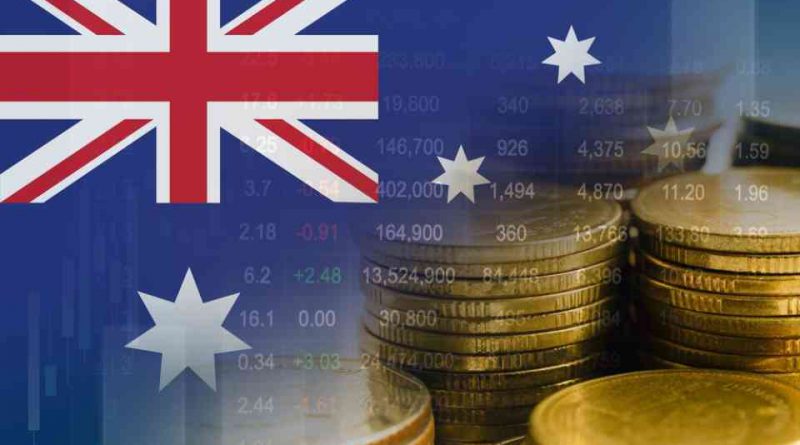OPINION: Trump’s Tariffs Toppled Australia’s Conservative Coalition
Following a tough loss, the Liberals need to genuinely listen to the concerns of people, whether they reside in city apartments or in the countryside.
It was just another morning in Canberra when the Breaking News spread that President Donald Trump, back at the White House, had signed an important executive order. This order meant there would now be a big 10% tax on everything Australian exports to the United States. This sudden announcement was a huge shock for the Liberal Party. They had always believed in the strong friendship with the US, feeling secure because of it. But now, that relationship was causing problems. The American flag, once a symbol of safety and security, was now becoming a sign of economic trouble and challenges in upcoming elections. For many, this was a wake-up call to rethink how this alliance impacts the future.
Political Rust due to Liberal’s ‘Mateship’ Relationship
For a long time, the Liberals were known to rely on their strong ties with Washington for their foreign and economic policies. This close relationship was seen as a key part of their strategy, starting with John Howard and continuing with Scott Morrison, who focused on building friendly alliances. They promoted this connection as a kind of safety net against the unpredictable nature of the Asia-Pacific region. However, when President Trump imposed tariffs, it had a negative impact on many Australian products like beef, wine, lithium, and education services. The previous promises of security no longer seemed dependable. Exporters were frustrated, business leaders rushed to adjust their supply chains, and farmers in rural Australia became increasingly worried as American buyers could vanish quickly.
Failure of ‘Make Australia Great Again’
The “Make Australia Great Again” campaign led by Peter Dutton ended in disappointment instead of victory. The campaign offices and Liberal Party halls were partially empty, signalling a possible failure. Dutton had adopted strategies like those of Donald Trump. He opposed “woke” culture, talked tough about immigration, and wanted to reduce the public service. While these ideas excited a small group, most Australians found them out of touch with their daily lives. Trump’s trade tariffs had already hurt Australian exports and increased living costs, causing people to reject the chaos linked to Dutton’s approach. Many felt Dutton acted too much like Trump, and his campaign failed on election night as he even lost his own seat. When Anthony Albanese celebrated his win, it was clear Australians wanted stability instead of chaos. The Liberal Party’s attempt to imitate American politics turned into a lesson on the risks involved.
PM Anthony Albanese capitalized despite Dutton’s attacks
Anthony Albanese initially faced a difficult situation when Trump’s tariffs had a big impact on Australia’s economy. Peter Dutton criticized Albanese, claiming he was so unimportant that Trump ignored him while deciding the tariffs. Instead of getting upset, Albanese took the opportunity to address the concerns of Australians. He called the tariffs “totally unwarranted” and said they were “not the act of a friend.” However, he made it clear that he did not want to respond with more tariffs. Albanese emphasized, “We will not join a race to the bottom that leads to higher prices and slower growth,” expressing his belief in finding better solutions for the economy.
Albanese remained calm in his leadership. He introduced specific support for industries that were affected, starting with a $1 billion resilience fund. Alongside this, he promised to help exporters discover new markets. He pointed out to voters that the US takes only five percent of Australia’s exports, assuring them that Australia was better prepared than most to handle these tough times. Meanwhile, Dutton’s campaign may have faced difficulties due to uncomfortable comparisons with Trump and a shift to extreme right-wing allegations. This approach made his campaign seem loud and disconnected from what the public really expected for this term, which was steadiness and reliability, not showy displays.
Dutton claimed he was the only one who could have gotten an exemption from Trump, but many people didn’t buy it. This was because there were photos of his party members wearing “MAGA” hats and praising Trump, which were still fresh in voters’ minds during the campaign. Meanwhile, Albanese stayed calm and didn’t blame others, which appealed to voters who were tired of external chaos. Instead of getting involved in loud disputes, he promised to fight for Australian jobs, industry, consumers, and values. By doing this, Albanese turned Dutton’s criticisms into evidence of his own strong leadership.
A Confused campaign launched by Liberals
In 2025, the Liberal Party’s campaign was confusing and inconsistent. They kept changing their policy plans, and their announcements usually came too late to make an impact on voters. Peter Dutton was once considered a strong leader, but his leadership lacked the charisma during the campaign. The campaign put too much focus on his personality, but the reality is Australia and American voters are far different. The party’s message wasn’t precise to voters, and they reversed their positions on important issues like cutting public sector jobs and remote work. They also failed to provide clear alternatives to Labor’s cost-of-living plans. Liberal MP Keith Wolahan said, “We must recognize that things went awry,” which showed that many people in the party thought things didn’t go well.
A new dawn waits for Liberals
Following a tough loss, the Liberals need to genuinely listen to the concerns of people, whether they reside in city apartments or in the countryside. To make a comeback, they must address the problems from their last campaign and refocus on their core mission: supporting families, small businesses, and those who feel left out by rapid changes. By zeroing in on real solutions – like managing inflation, lowering living costs, and creating a balanced energy plan that includes renewables, gas, and nuclear – the Liberals can begin to rebuild trust where it’s needed most.
The party should admit where it went wrong, let go of outdated slogans, and present a clear vision for Australia’s future. This includes focusing on sustainable economic growth and tackling the housing crisis by developing new homes and infrastructure. It also involves restoring trust in public services such as Medicare and local roads. For the Liberals to regain their footing, they must pursue bold and credible reforms. This means cutting down on excessive regulations, supporting small businesses, and ensuring that every policy directly addresses the real-life issues Australians face, like stagnant wages and rising bills. The Liberals must work as a Team instead of highlighting focus on their leader, which requires a unifying leadership who is more accepted and cherished among common Australian circles.
Disclaimer: Views expressed by writers in this section are their own and do not reflect Milli Chronicle’s point-of-view.



